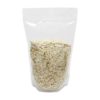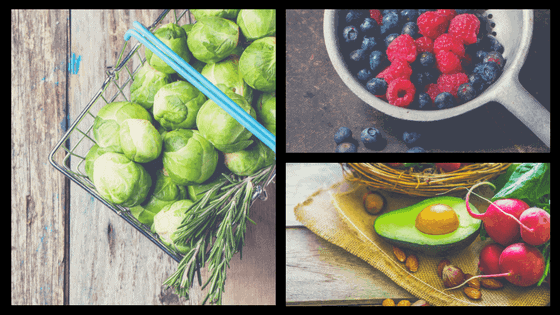Blog
Superfoods – Are They Really Super?
Superfoods have been something of a food trend over the last year or so, and while there is no actual definition for the word ‘superfood’, it is something that many of us have been quite taken with. Superfoods are foods that claim to contain certain antioxidants, vitamins and other properties that can slow the ageing process, reduce our risk of disease and illnesses, and in some cases can apparently boost our intelligence. While there is no doubt that whole foods, fruit and vegetables are incredibly beneficial to our bodies, is the term ‘superfood’ used correctly, or is it just a marketing ploy to tell us what the next food hype should be?
There’s a whole list of foods that are deemed special enough to come under the superfoods category, avocado and kale being particularly popular in 2015, and whilst the majority of these foods are certainly good for you, there is little evidence to support the superfood claim.
Many of the claims made in relation to superfoods, are based loosely on university research funded by various marketing companies working within the food industry. And while there certainly could be a chance that these foods provide our bodies with more nutrition and more vitamins that can essentially ward off illnesses in the future, it’s not quite enough to sell a food to the public with such wild beneficial promises.
However, setting aside whether or not these superfoods contain powers beyond the average fruit or vegetable, they are still incredibly good for our bodies. Let’s take a look at the most popular superfoods and see how “super” they really are.
Goji berries
Goji berries are said to improve our immune systems, protect against heart disease and cancer and even boost our brain activity and life expectancy, while there is no evidence to support this, goji berries are, of course, a healthy source of nutrients. Unfortunately, due to their superfood status, they are much more expensive to buy than your average fruit and berries and provide no more nutrients than their cheaper siblings.
Avocado
Avocado is a superfood that has risen to fame over the last year or so, and may actually deserve the title. Avocados are absolutely packed with fiber, potassium, magnesium, and monounsaturated fats (the good fat). They are known for helping to control cholesterol and can also help with diabetes. The avocado lives up to its name of superfood, and when eaten in moderation can do wonders for a healthy lifestyle.
Kale
Kale is another food that has been added to many of our shopping lists due to its recent food trend fame. Kale is another food that while it may not live quite up to the expectations of superfood status, it truly is very good for our health. Kale is also packed with nutrients and vitamins including vitamin K which works towards prevent blood clots and maintaining healthy bones, while also being very low in calories.
Quinoa
Quinoa, for a grain, is extremely nutritious but comes at a much higher cost than any of its kind that are not classed as a superfood. Quinoa is high in fiber, very high in protein and also contains many beneficial vitamins. There’s no denying that quinoa can definitely contribute to a healthy diet, however there are many other similar foods to quinoa that offer the same properties and nutritional values.
So maybe all the superfoods aren’t that “super”, but they are all beneficial to our health and our bodies in one way or another. So the term superfood may not be quite what it sounds, and may be a food industry sales tactic, there’s nothing wrong with the fact that these food trends may be encouraging us to eat healthier, and be more aware of what’s going into our diets.
Often when we hear about a new superfood that we want to try we are paying over the odds for a product that is most likely sat next to a less commercialized food that can offer us the same properties. Rather than going out to buy these foods based on what we read on the Internet or hear about through social media, it pays off to research what we eat, and truly discover the benefits of foods for ourselves.





